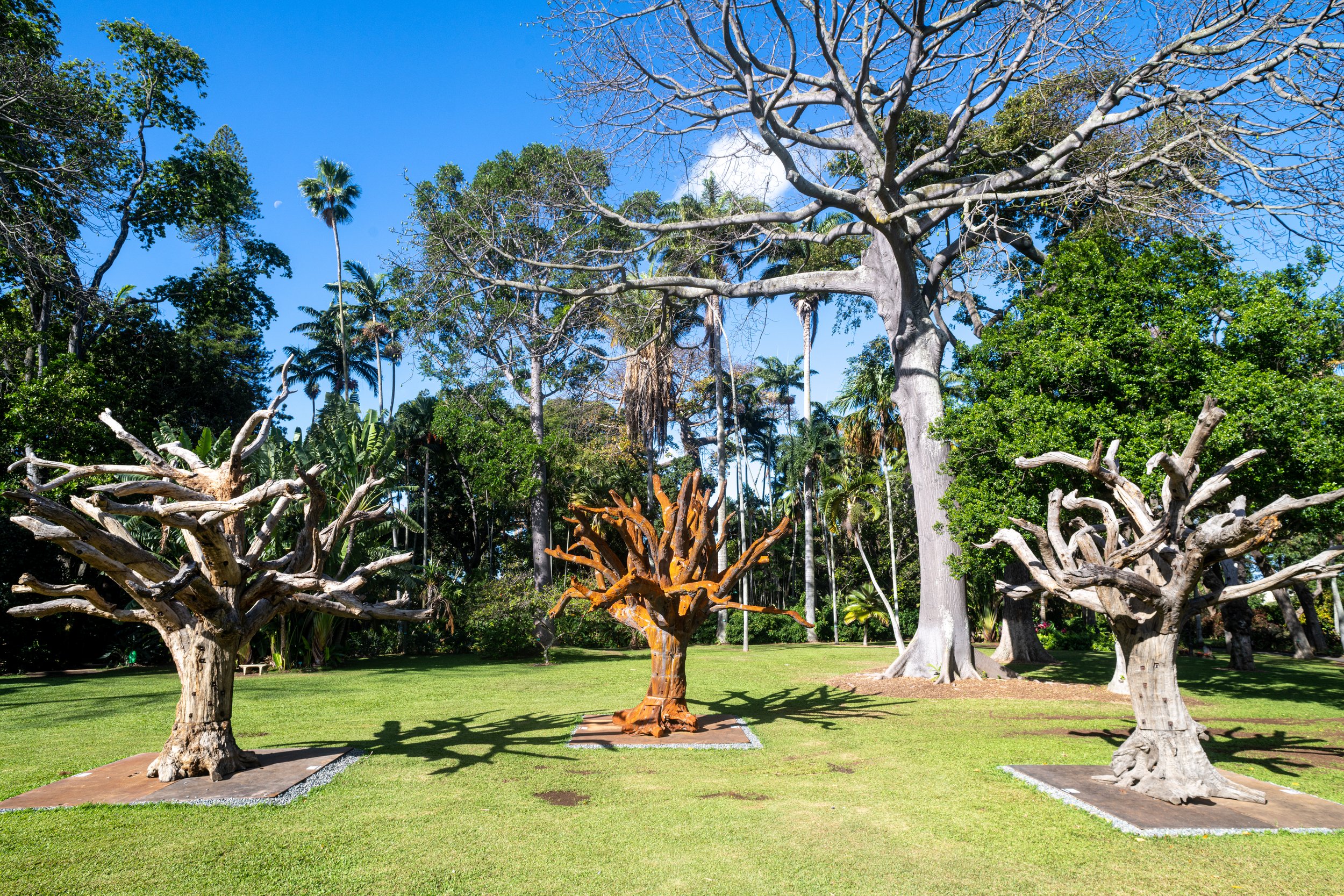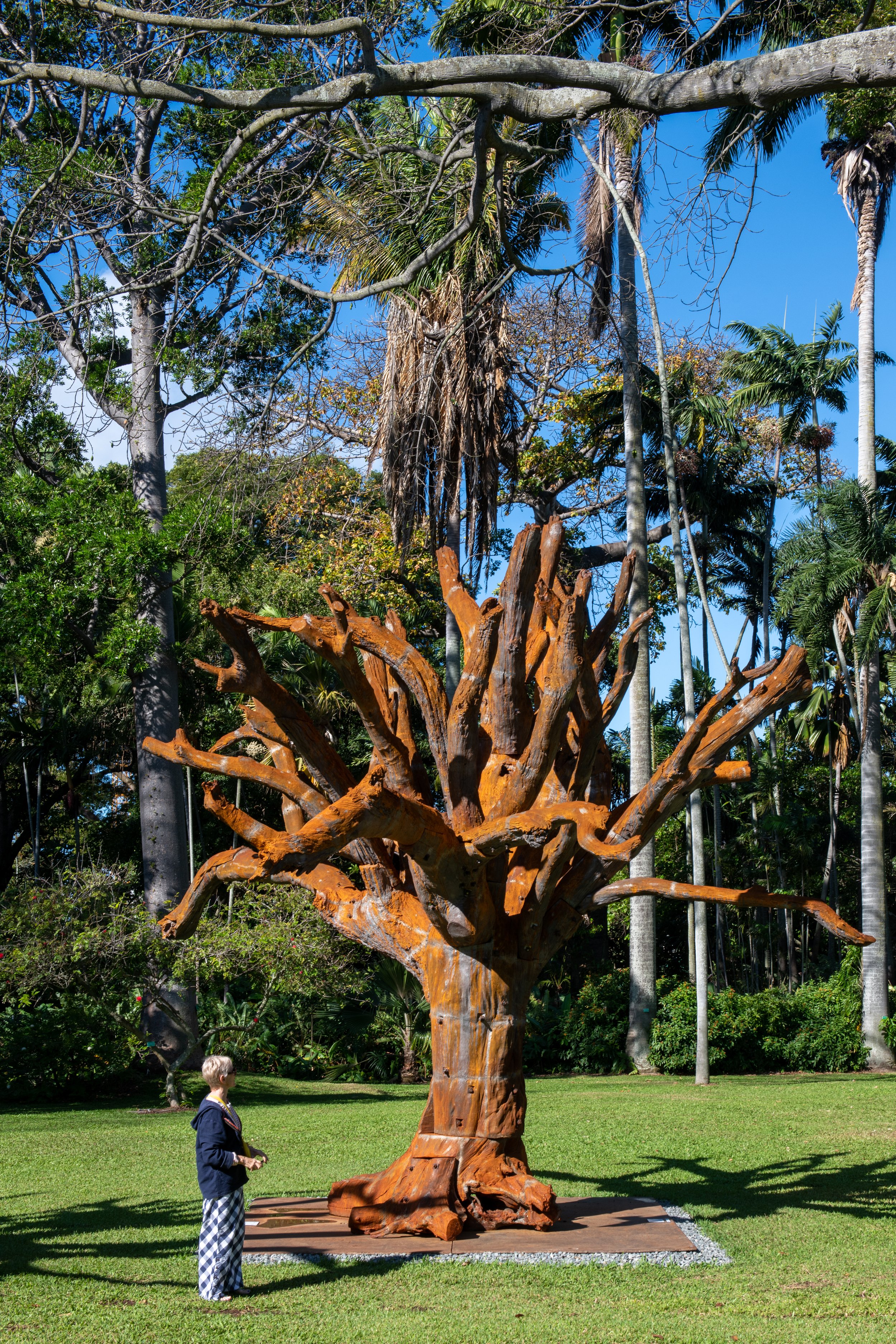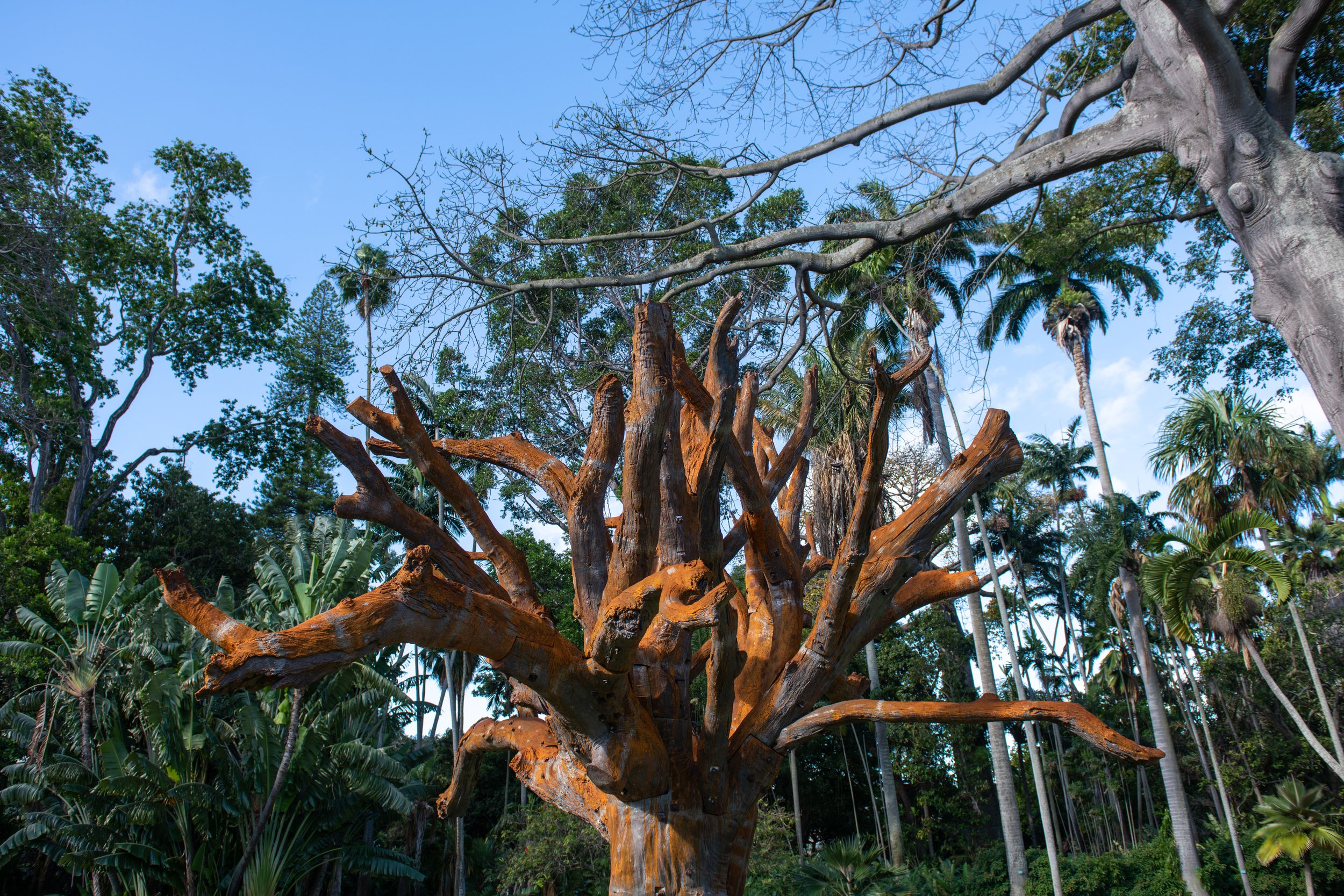hawai‘i triennial 2022
@ FOSTER BOTANICAL GARDEN
Ai Weiwei
b. 1957, Beijing
lives and works in Beijing, Berlin, Cambridge, and Lisbon
Ai Weiwei’s influential studio practice resides at the juncture between fine art and architecture, and has expanded to include an infamously censored and now-defunct Internet blog, social media engagement, and more recently film, all of which has been employed as a set of critical tools for social activism against the Chinese government and other structures of global repression such as discriminatory migrancy policies. Ai’s formative years were spent in exile with his family in the Xinjiang region during China’s Cultural Revolution, following the forced deployment of his poet father Ai Qing to a labor camp as punishment for perceived governmental opposition. As such, Ai’s practice is driven by a critical impulse, a call to action, highlighting fraught and complex relationships between authoritarian regimes, citizenry, and the built and natural environments.
Ai’s confrontation of political systems and their apparatuses manifests through the act of questioning opposing value systems—public versus private imperatives, for example—by setting up situations where manmade symbols of tradition, imperialism, commerce, and capitalism are simultaneously critiqued. This is exemplified in his provocative work Han Dynasty Urn with Coca-Cola Logo (1994), where an antique ceramic urn has been emblazoned with the internationally recognized logo of the beverage company in a commentary on the so-called sacred and profane.
For the well-known installation Sunflower Seeds (2010), first commissioned for Tate Modern, Ai scattered 100 million porcelain seeds, painstakingly hand-painted by over 1600 Chinese artisans, in the museum’s monumental Turbine Hall. This poetic work of fragile materiality provides an astute reading on the politics of mass consumption and the erosion of individual identity.
Building on the monumental scale of Ai’s installations is his ongoing Roots (2018–), an iron-cast series of contorted sculptural roots from the endangered Brazilian Pequi Vinagreiro tree, native to the Bahian rainforest. The project was created as part of a community centric involvement with local artists and members of the public from Trancoso, Brazil, and raises important questions concerning indigenous sustenance, which has been destabilized by the colonial enterprise of deforestation and exploitation of natural resources. Roots resonates with another series inspired by the arboreal form entitled Tree (2009–10). Installed as a group of eight trees in the front courtyard of the Royal Academy in London in 2015, fragments of dead trees from southern China have been grafted together to re-imagine the original living tree. Whether aspiring toward their resurrection or toward the form of an ideal tree, their bolted limbs also suggest futility and the violence of human desire, paralleling the painful tale of Frankenstein.
For HT22, two of these trees and one of its iron-cast versions are grouped together in a trinity and placed on the upper terrace of Foster Botanical Garden in Honolulu. Transposed into the spatial context of this ironically man-made natural environment, the sculptures function as an imposing reminder of the historical and contemporary settler, imperialist, and corporate practices in Hawaiʻi that have upended traditions of daily life in the Indigenous Hawaiian population and irreversibly altered the flora and fauna of the land. In keeping with Ai’s desire to champion the freedom and democracy of people and places, the installation is an urgent call to action against environmental upheaval and the displacement of communities.
Ai Weiwei, 2012. Courtesy of the artist and Lisson Gallery. © Ai Weiwei Studio. Photo: Gao Yuan.
Ai Weiwei was born in Beijing in 1957 and has lived in Berlin, Cambridge and currently resides and works in Portugal since 2021. He is renowned for making strong aesthetic statements that resonate with timely phenomena across today’s geopolitical world. From architecture to installations, social media to documentaries, Ai uses a wide range of mediums as expressions of new ways for his audience to examine society and its values.
Recent exhibitions include: Ai Weiwei: Resetting Memories at MARCO, Ai Weiwei: Bare Life at the Mildred Lane Kemper Museum in St. Louis, Ai WeiWei at the K20/K21 in Dusseldorf, and Good Fences Make Good Neighbors with the Public Art Fund in New York City. Ai is the recipient of the 2015 Ambassador of Conscience Award from Amnesty International and the 2012 Václav Havel Prize for Creative Dissent from the Human Rights Foundation.





